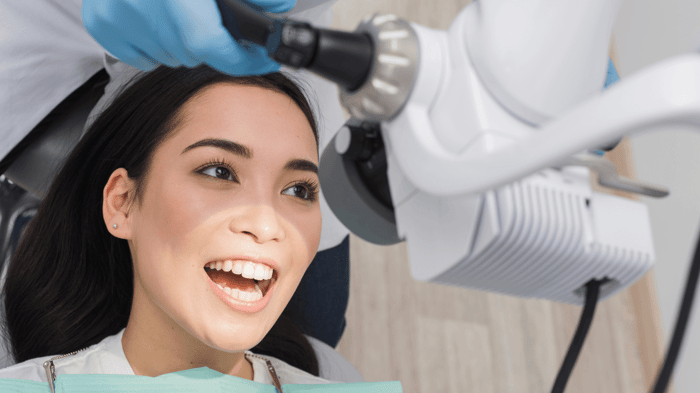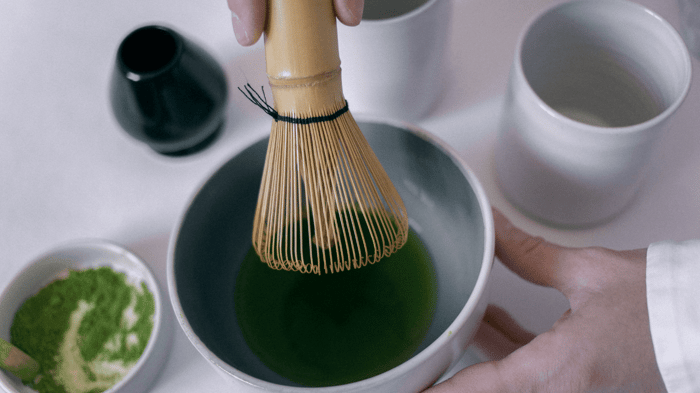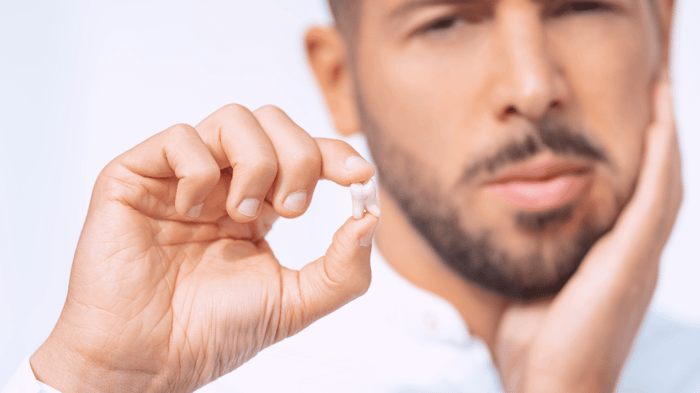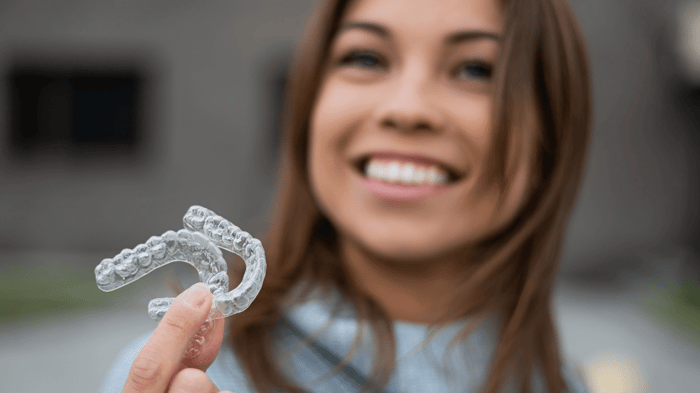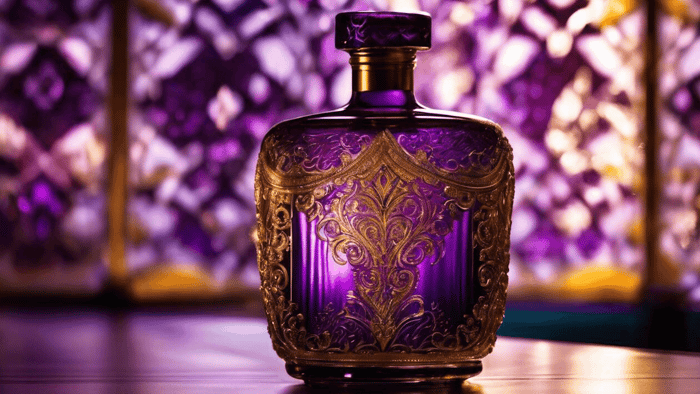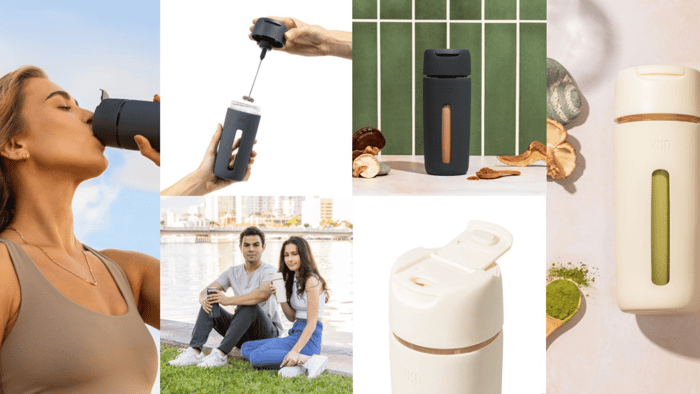Can I Drink Coffee After Fluoride Treatment? Yes, you can enjoy your coffee after a fluoride treatment. This is because fluoride, once absorbed into your teeth, isn't easily washed off by things like food or drink. But remember, coffee can stain your teeth over time so do be mindful of your dental hygiene. Picking up that coffee cup post-treatment shouldn't be a worry! Now, about that fluoride treatment...
It is generally recommended to avoid consuming hot beverages like coffee for at least 24 hours after a fluoride treatment. The heat and acids in the coffee may interfere with the fluoride uptake, so it's best to wait until the next day before enjoying your cup of joe.

Understanding Fluoride Treatment
Fluoride treatments act as a protective shield for your teeth, helping to keep them strong and fend off cavities. This mineral can be applied to the teeth using gels, foams, or varnishes. When used appropriately, fluoride aids in preventing tooth decay by making your tooth enamel more resistant to acid attacks from plaque bacteria and sugars in the mouth.
Tooth enamel is the hard outer layer of your teeth, serving as a defense against decay. Exposure to acids weakens this enamel, leading to cavities and other dental problems. When fluoride is applied, it combines with the enamel, making it harder and more resistant to decay and even has the potential to reverse early signs of tooth decay. This process is particularly beneficial for individuals at higher risk of developing dental cavities, such as children and adults with weakened enamel, or a history of frequent cavities.
In this regard, think of fluoride like a personalized bodyguard for your teeth – it helps them stay strong through it all! By remineralizing weakened spots, fluoride adds an extra layer of protection against acid attacks, ultimately making your teeth stronger and more durable.
Now that we've learned about the role of fluoride treatment in safeguarding our dental health, let's explore the safety measures to ensure optimal benefits without any complications.
Effect of Fluoride on Teeth
Fluoride, often hailed as a superhero for your teeth, gets right to work on those pearly whites. Just like a good shield, it helps to protect and preserve your teeth.
Remineralization of Teeth
Think of fluoride as a handy helper that strengthens teeth from the inside. When sugar and acids from food and drinks start to eat away at your tooth enamel, they leave weak spots behind. These are tiny holes where cavities can begin. Fluoride quickly rides to the rescue, rebuilding these weak spots before cavities can fully take over. It works by attracting minerals like calcium and phosphate - building blocks that form the hard outer surface of your teeth - back into your tooth enamel. When areas are just starting to show signs of decay, fluoride can help to effectively slow down or stop the progression of cavities.
Protection Against New Cavities
Picture fluoride as a brave little knight with a magical shield. Instead of just mending small weaknesses, it prevents new ones from taking root. Fluoride fortifies your tooth enamel, making it much harder for cavities to sneak through and cause damage.
Reversing Tiny Cavities
Not only does fluoride stand guard and protect—sometimes it even manages to reverse the effects of early-stage decay! When cavities are just beginning to form, fluoride can swoop in and stop them in their tracks by re-mineralizing the weak spots. This essentially means that tiny cavities could be repaired before they become major dental issues.
These superpowers make it clear that fluoride is not just a protector but also a healer – stopping trouble before it starts and fixing it when it's just getting going.
With fluoride holding such significant roles in maintaining dental health, understanding its interaction with substances like coffee becomes crucial. Now, let's unravel the relationship between coffee consumption post-fluoride treatment.
Coffee Consumption Post-Fluoride Treatment
Getting back to - Can I Drink Coffee After Fluoride Treatment? Fluoride plays a vital role in strengthening and protecting our teeth. Now, let's talk about coffee. It's usually a morning ritual for many—there's something about the aroma and the warmth that just feels comforting. However, after fluoride application, it's important to be mindful of when you indulge in that cup of coffee.
Given that fluoride works to fortify tooth enamel, waiting at least 30 minutes before eating or drinking is typically recommended following fluoride treatment. This break helps ensure that the fluoride has sufficient time to absorb into the teeth. Consuming acidic foods or drinks right after a fluoride application can potentially interfere with the remineralization process initiated by the fluoride. This is where coffee comes into play.
Coffee is slightly acidic due to compounds such as chlorogenic acid and quinic acid present in roasted coffee beans. The acidity of coffee can affect the pH level in the mouth, potentially hampering the rehardening of tooth enamel facilitated by fluoride treatment. Bear in mind, though, that moderation and timing are key. Consuming your favorite brew an hour or so after fluoride treatment may not pose significant issues, allowing ample time for the fluoride to get to work without disruption from acidic substances.
To put this into perspective: Imagine trying to grow a plant seedling. Placing it in soil and allowing it time to take root and absorb nutrients is akin to letting your teeth absorb and utilize the benefits of fluoride before consuming potentially acidic substances like coffee.
If you absolutely need your morning coffee sooner than advised, consider opting for milk or dairy creamer which can help neutralize acidity and minimize its detrimental effects on teeth.
So it looks like "patience is a virtue" applies even here with coffee consumption post-fluoride treatment!
In understanding the interactions between fluoride treatment and beverages like coffee, it lays the groundwork for being strategic about when you drink your favorite drinks post-treatment. Timing is indeed crucial. Hence, we shift our focus now to examining these temporal considerations in detail.
Timing Your Drinks After Fluoride Treatment
After your fluoride treatment, the fluoride requires time to properly soak into your teeth to work effectively. This can take some time - at least 30 minutes. During this time, it's crucial to be mindful of what you eat and drink to prevent any interference with the fluoride. Any food or drink consumed in the first 30 minutes after a fluoride treatment may wash away the fluoride or interfere with its ability to penetrate and provide its full benefits.
There's a good reason for this waiting period. Think of it like tending a garden. You wouldn't water a plant right after putting down fertilizer; you'd let the fertilizer soak into the roots first so it can work its magic. Similarly, giving the fluoride time to absorb into your teeth allows it to do its job and strengthen your enamel effectively.
Mineral Interference
To explain further, think of your tooth enamel as a shield. The fluoride acts like reinforcements that help patch up any weak spots and fortify the structure. By waiting 30 minutes without eating or drinking, especially acidic or mineral-rich foods such as orange juice or milk, you're allowing the fluoride to form a strong bond within your teeth without any external interference. So, next time after a fluoride treatment, consider it as creating an impenetrable armor for your teeth.
Now that we understand why it's important to avoid consuming anything immediately after a fluoride treatment, including coffee, it's clear that patience is key in allowing the treatment to set in and provide long-term benefits for your dental health.
In establishing these principles of dental health and care post-fluoride procedures, we now move on to explore different beverages and their relationship with optimal oral care.
Other Beverages and Fluoride Treatment

We know that acidic fruit juices and carbonated drinks can harm our teeth, especially by weakening enamel. But when it comes to fluoride treatment, you might wonder why these beverages should be avoided for at least 30 minutes after a treatment. It all boils down to creating a clear environment where fluoride can be fully absorbed into the teeth.
Fluoride treatments aim to strengthen teeth and make them more resistant to decay. Since the goal is to enhance fluoride absorption, any interference from beverages can affect its success. The acidity and composition of these drinks can neutralize the impact of fluoride, thereby hindering its ability to benefit tooth enamel.
For instance, acidic fruit juices like orange juice contain citric acid, which erodes tooth enamel over time. When mixed with fluoride right after a treatment, it can diminish the positive effects of fluoride in strengthening your teeth and protecting them from cavities.
Similarly, carbonated drinks contain carbonic acid, contributing to enamel erosion. This contradicts the goal of fluoride treatment - to strengthen and protect the enamel. Additionally, alcohol has a drying effect on the mouth that could counteract the benefits of fluoride by diminishing its ability to adhere correctly.
This doesn't mean you have to avoid these beverages entirely; it simply calls for mindfulness regarding timing. Waiting at least 30 minutes following a fluoride treatment allows for optimal fluoride uptake without any external interference.
Understanding this helps you make informed decisions about your post-treatment habits. By being mindful of your beverage choices during this crucial timeframe, you're ensuring that you maximize the effectiveness of the treatment every time.
By being aware of the implications of different beverages on post-fluoride treatment oral health, we set ourselves up for making informed choices moving forward.
The Pros and Cons of Coffee After Dental Treatments
Ah, the aroma of coffee in the morning is just what many of us need to kickstart the day feeling awake and refreshed. It's a cherished part of daily routines for countless individuals around the world. However, when it comes to your teeth, coffee's impact isn't always so pleasing. Let's weigh out the good and bad effects of can I Drink Coffee After Fluoride Treatment?
The Pros
Coffee, when consumed moderately, has been linked to multiple health benefits. For example, some studies highlight its potential to improve cognitive function—keeping you sharp and attentive during working hours and daily activities. Regular coffee consumption has also shown associations with minimizing the risk of certain conditions, such as liver disease and Parkinson's disease.
The Cons
As much as we'd love to focus only on the bright side of things, there are drawbacks to consider here. Coffee is an acidic beverage, which means that its pH level is low enough to erode tooth enamel over time. In the aftermath of a fluoride treatment at a dental office, consuming coffee immediately afterward could heighten this risk of enamel erosion. This places teeth in a vulnerable position where they are more prone to damage from the acid present in the drink. While it’s not necessary to eliminate coffee completely from your life following fluoride treatments, it’s essential to manage your consumption carefully.
Just picture this: Enamel erosion can lead to increased tooth sensitivity, discoloration, and an increased risk of cavities—which quickly diminishes the joy of enjoying that favorite cup of coffee without any worries.
Finding a balance between indulging in a cup of coffee for its potential benefits and ensuring it doesn't compromise your dental health can be tricky. But considering these pros and cons aligns with maintaining good oral health and preserving the results of your fluoride treatments.
Striking a balance between enjoying a cup of coffee and maintaining optimum dental health involves continual awareness and benevolent modifications in behavior. Now, let's hone in on another aspect pertinent to post-fluoride dental care—the significance of drinking water after a fluoride treatment.
Drinking Water After a Fluoride Treatment
After receiving a fluoride treatment, it's crucial to consider how you're tending to your teeth and mouth. Fluoride treatments are beneficial for fortifying and safeguarding your teeth, but it's imperative to ensure that the fluoride is uniformly spread across all tooth surfaces for maximum effectiveness. This is where drinking water comes into play.
The Role of Water
Water plays a vital role in post-treatment care by assisting in rinsing away any excess fluoride left in the mouth, aiding in its distribution across the tooth surfaces. It also neutralizes any remaining acids from the treatment and promotes saliva production, offering a natural form of protection for the teeth.
Keeping hydrated is critical for maintaining a balanced pH level in the mouth. When the pH level is balanced, it creates an environment that is less conducive to harmful bacteria and plaque formation. Saliva produced by staying hydrated also acts as a natural rinsing agent that helps clear away food particles, bacteria, and plaque that may have accumulated after the fluoride treatment.
Timing Matters
Drinking water right after a fluoride treatment can help wash out any residual fluoride and acidic remnants from the treatment process.
Why Plain Water?
It's important to note that when we talk about drinking water after a fluoride treatment, we specifically mean plain water without any added flavors, sweeteners, or carbonation.
For instance, adding citrus flavorings or drinking sparkling water with added components immediately after a fluoride application can interfere with the proper distribution of fluoride and might not be as effective in maintaining oral health as plain water would.
So the next time you opt for a glass of water after a fluoride treatment, remember that it's not just about quenching your thirst; you're actually contributing to preserving your oral wellness!
Recent time at the dental clinic has likely left you with plenty of questions about what you can consume post-treatment. Now, let's delve into some practical advice on post-treatment beverage choices to keep those pearly whites gleaming!
Practical Advice for Post-Treatment Beverage Consumption
Once you've waited 30 minutes after a fluoride treatment, consider selecting beverages that will help maintain the health of your teeth. It's important to remember that acidic and sugary drinks can interact with fluoride in a way that reduces its benefits. Opting for low-acid, low-sugar drinks is key.
Consider drinking milk or non-sugary herbal tea as they don't have added sugars or acids, complementing the positive effects of fluoride by providing additional dental support. Unsweetened dairy products can also yield similar results as they lack added sugars or acid that could counteract the fluoride.
You might be asking about coffee or juices? Coffee and some fruit juices may not pair well with the treatment because of their acidity. Acidic drinks following a fluoride treatment have the potential to lessen its benefits by combining with the fluoride ions and having an erosive effect on tooth enamel. Choosing low-acidic coffee and juices might be considered but drinking water is still the best choice.
It's like planting seeds in a garden. Just like you wouldn't water your plants with soda and expect them to grow healthy, consuming acidic beverages right after a fluoride treatment isn't optimal for your oral health.
Water, however, should remain your top beverage choice at all times. Its neutral pH won't clash with your recently treated teeth. If you're concerned about hydration after waiting 30 minutes post-treatment, water remains the best choice - every dentist would certainly approve!
Being mindful of the drinks consumed post-fluoride treatment is crucial for ensuring optimum dental health and opting for low-acid, low-sugar beverages will contribute positively to maintaining the benefits of the treatment.
Maintaining good oral health is not just about avoiding sugary snacks and brushing regularly; it's also about being mindful of what you consume even after dental treatments. Making informed choices about beverages post-treatment can significantly impact your long-term dental health.
Does drinking coffee after a fluoride treatment reduce the effectiveness of the treatment?
Drinking coffee after a fluoride treatment does not reduce the effectiveness of the treatment. Although caffeine can temporarily decrease the pH level of saliva, studies have shown that it does not affect the absorption or retention of fluoride in the teeth. Furthermore, the benefits of fluoride treatments last beyond immediate post-treatment activities like drinking coffee. So go ahead, enjoy your cup of joe worry-free!
Are there any specific types of coffee or caffeine-containing beverages that should be avoided after a fluoride treatment?
While there are no specific types of coffee or caffeine-containing beverages that should be completely avoided after a fluoride treatment, it is advisable to limit consumption of darkly roasted coffees or beverages with high acidity. This is because these types of coffee can potentially erode tooth enamel, which could counteract the effects of fluoride treatment. Furthermore, it is also recommended to avoid adding excessive amounts of sugar to your coffee, as this can increase the risk of tooth decay.
How soon after a fluoride treatment can I safely consume coffee?
It is generally recommended to wait at least 30 minutes after a fluoride treatment before consuming any food or beverages, including coffee. Fluoride treatments work by allowing the fluoride to penetrate and strengthen the tooth enamel. Consuming coffee immediately after the treatment can potentially wash away the fluoride and diminish its effectiveness. By waiting for a short period, you give your teeth enough time to absorb the fluoride fully, ensuring optimal benefits.
Can drinking coffee stain or discolor teeth that have received a fluoride treatment?
Yes, drinking coffee can potentially stain or discolor teeth that have received a fluoride treatment. Coffee contains tannins which can adhere to the tooth enamel and cause discoloration over time. According to a study conducted by the American Dental Association, consumption of coffee is associated with an increased risk of tooth staining. Therefore, it is advisable to minimize the consumption of coffee or use a straw to bypass direct contact with the teeth after undergoing a fluoride treatment to maintain its effectiveness and prevent discoloration.
Are there any specific dental care instructions to follow when consuming coffee after a fluoride treatment?
Yes, there are specific dental care instructions to follow when consuming coffee after a fluoride treatment. It is recommended to wait at least 30 minutes before consuming any food or drinks, including coffee, to allow the fluoride to fully penetrate the teeth. Research shows that waiting for this period significantly enhances the effectiveness of the fluoride treatment in preventing tooth decay. Additionally, rinsing your mouth with water after drinking coffee can help reduce its staining effects on your teeth.
Try the Elixir Mixer—our electric whisk bottle—crafting a diverse range of hot and cold drinks is streamlined. Fill it up, press the button, and 15 seconds later—get sipping. It will quickly become the MVP of your everyday rituals.
